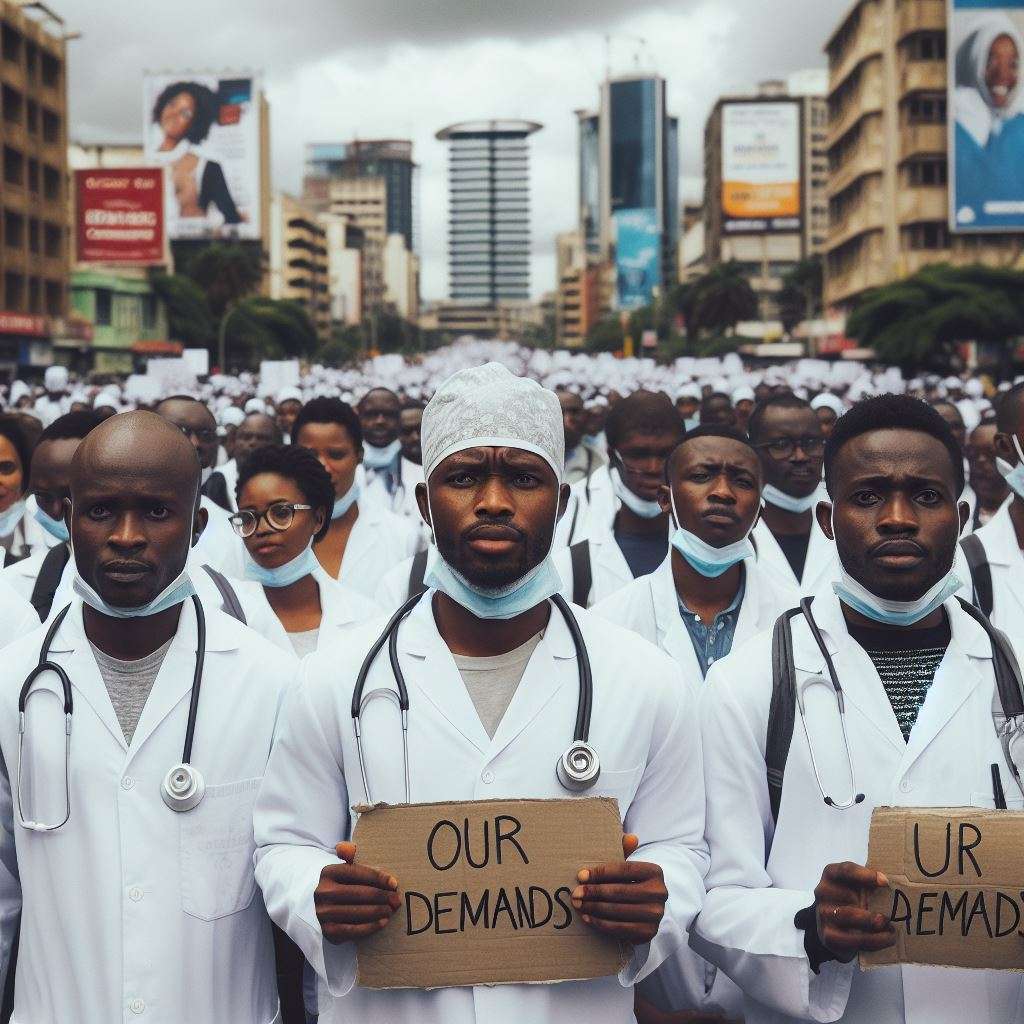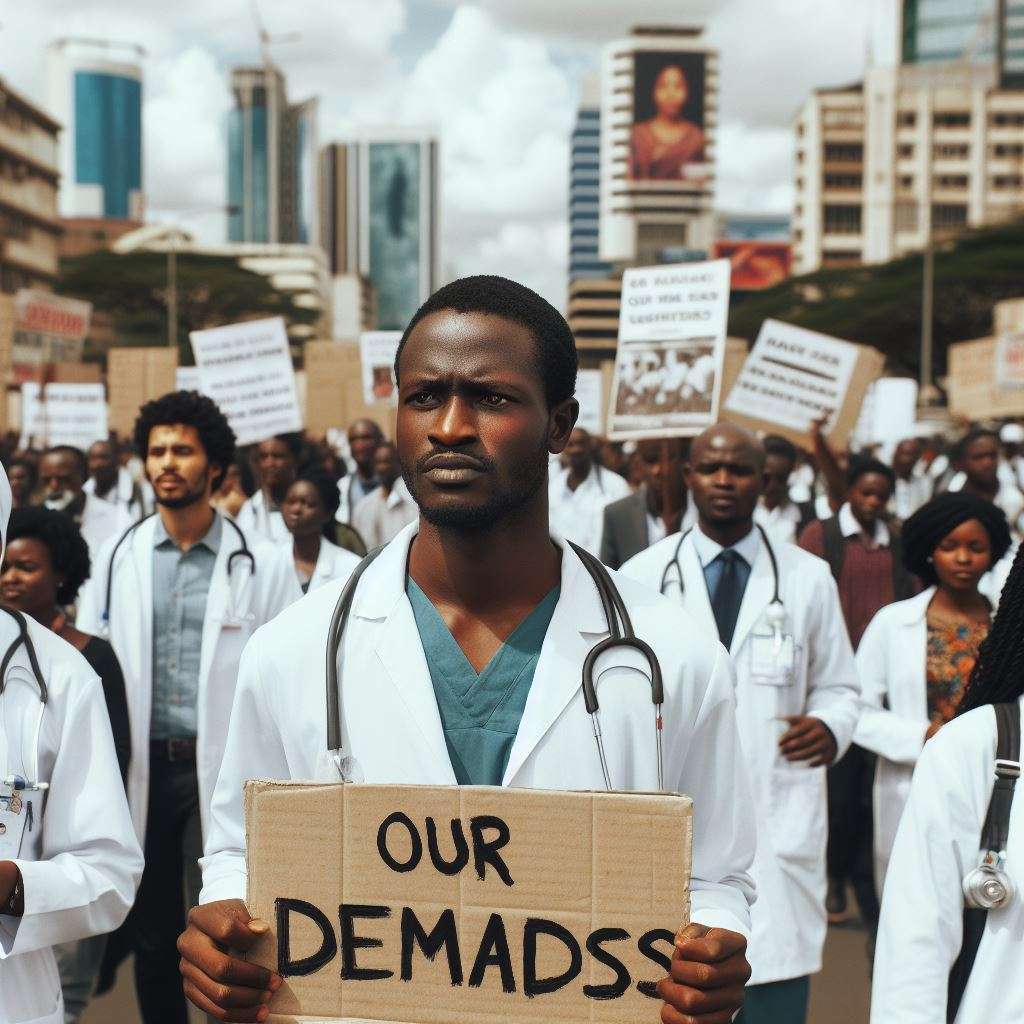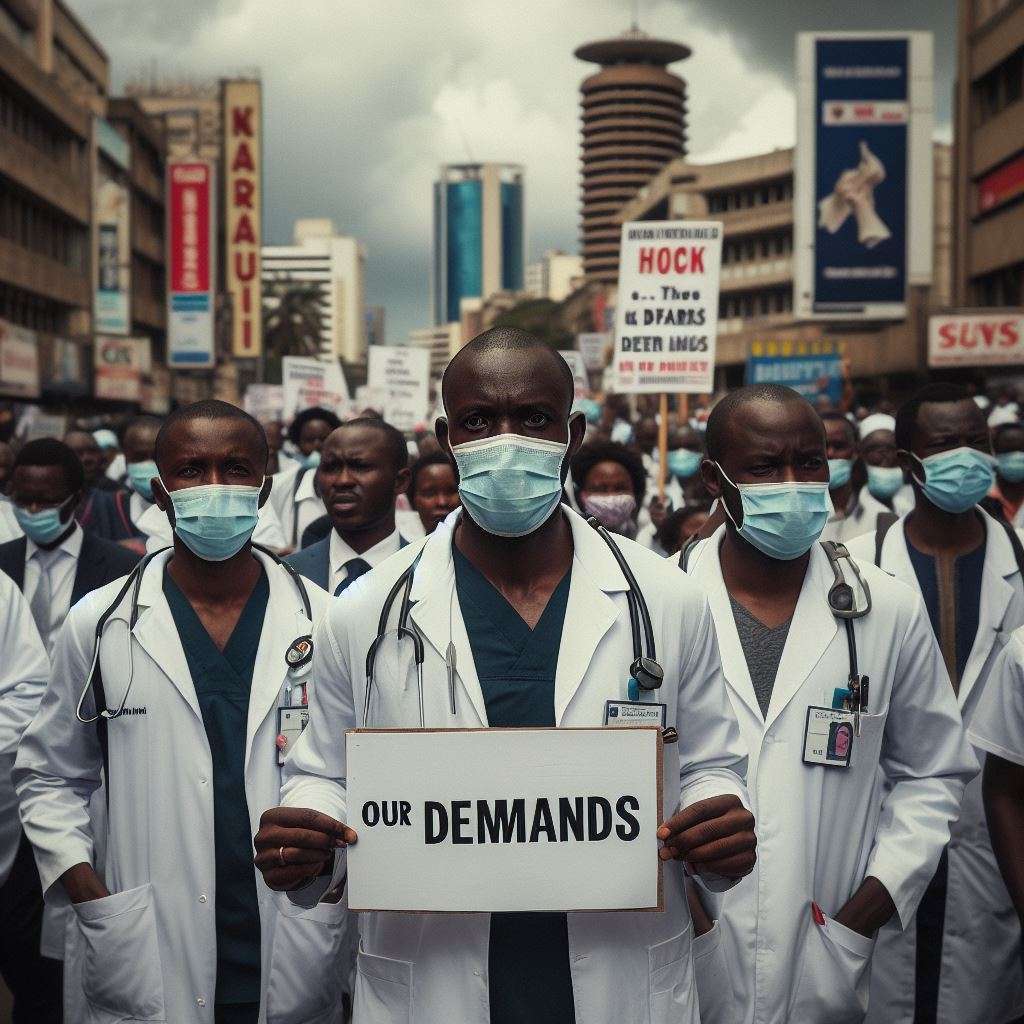
Reasons behind the doctors’ strike in Kenya 4 Major Demands.
Introduction
In Kenya, the healthcare system is grappling with a critical challenge as doctors across public hospitals have initiated a nationwide strike. The strike, which commenced on March 14, 2024, has resulted in patients being left unattended and turned away from hospitals. In this blog post, we delve into the reasons behind the doctors’ strike in Kenya, focusing on their four major demands and the impact on healthcare services.
Table of Contents
Background
In 2017, doctors in Kenya went on a 100-day strike, demanding better working conditions, improved salaries, and adequate medical supplies. The government promised to address these issues through a collective bargaining agreement (CBA). However, years later, doctors are still grappling with the same challenges.

Demands of the Striking Doctors
The Kenya Medical Practitioners, Pharmacists, and Dentists Union (KMPDU) has outlined several demands:
- Salary Delays: Doctors are frustrated by recurrent delays in salary payments. Many have faced financial hardships due to inconsistent pay.
- Statutory Deductions: The government has failed to remit statutory deductions promptly. This affects doctors’ ability to access essential services such as medical insurance and pension contributions.
- Comprehensive Medical Insurance: Lack of comprehensive medical insurance coverage for union members puts doctors at risk. They need adequate insurance to protect themselves and their families.
- Working Conditions: Doctors are advocating for improved working conditions, including better facilities, equipment, and protective gear. The lack of essential resources affects patient care.
Impact on Healthcare Services

The strike has had severe consequences for patients and the healthcare system:
- Patients Turned Away: Hospitals are unable to provide essential medical services, leading to patients being turned away. Emergency cases are particularly affected.
- Endangering Lives: Interruption of essential health and medical services endangers the lives of patients. Those seeking urgent care face life-threatening situations.
- Public Outcry: Kenyans are expressing frustration and concern over the government’s failure to address doctors’ grievances promptly.
Way Forward

The Employment and Labor Relations Court has temporarily halted the strike, creating an opportunity for negotiations. However, a lasting solution requires the government to fulfill its promises and prioritize the well-being of healthcare workers.
As the strike continues, Kenyans hope for a swift resolution that ensures quality healthcare services and fair treatment for doctors.
Recent Posts
How to Monetize Your Travel Blog, 10 ways
10 Adventures Beyond Safaris in Kenya Unleashed
10 Best Easter Holiday Destinations in Kenya
Tags

Thailand




